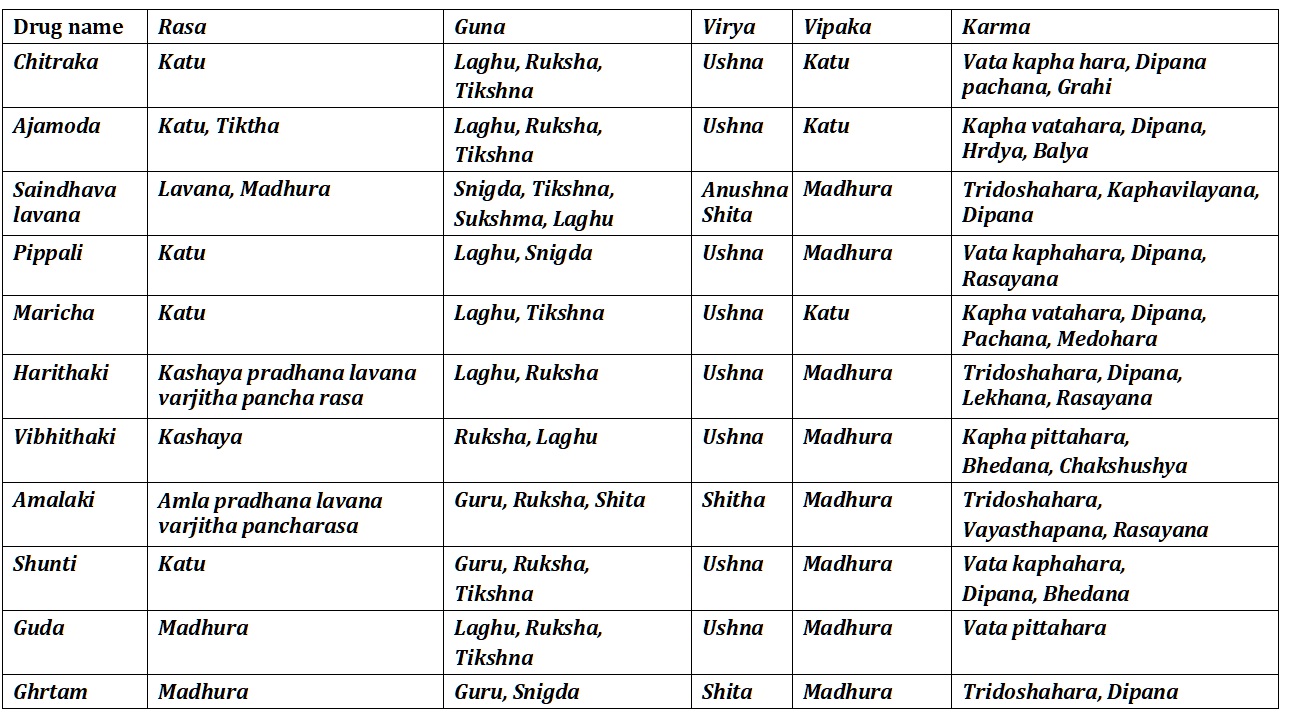A Comprehensive Review on the Effect of an Ayurvedic Protocol in Metabolic Syndrome
Abstract
The clustering of obesity, dyslipidaemia, impaired glucose tolerance, and hypertension, known as 'Metabolic Syndrome (MS),' has emerged as a significant global public health and clinical concern, attributed to urbanization, sedentary lifestyles, and dietary shifts. Metabolic Syndrome aligns well with the Ayurvedic concept of Medodhatuvriddhi, Medovahasrothodushti, Santharpanajanya vikaras (Sthoulya, Medoroga, Prameha, Hrdroga) and Ama pradoshaja vikaras. It is primarily caused by the vitiation of Kapha, Meda, Ama and hence drugs having Kaphavatahara, Medohara Chikitsa should be mainly adopted. Additionally, there is a common misconception among the public that ghee consumption leads to hyperlipidaemia. Taking these factors into account, a protocol has been formulated to assess the effectiveness of Huthabhugadi churna and Trayushnadi ghrtam in the management of MS. Most of the drugs in the formulations are having Kapha vatahara and Medohara properties which might help in eliminating excess Medodhathu and promote optimal Rasadi dhathus. Huthabhugadi Churna might play a pivotal role in addressing Jatharagnimandya whereas Trayushnadi Ghrtam might correct the imbalance in Dhatvagnimandya reducing the Atipravritti of Medodhathu. Consequently, this protocol might effectively help in reducing Kapha, meda and ama ultimately alleviating the symptoms associated with MS.
Downloads

Copyright (c) 2024 International Journal of Ayurveda and Pharma Research

This work is licensed under a Creative Commons Attribution-NonCommercial-ShareAlike 4.0 International License.






